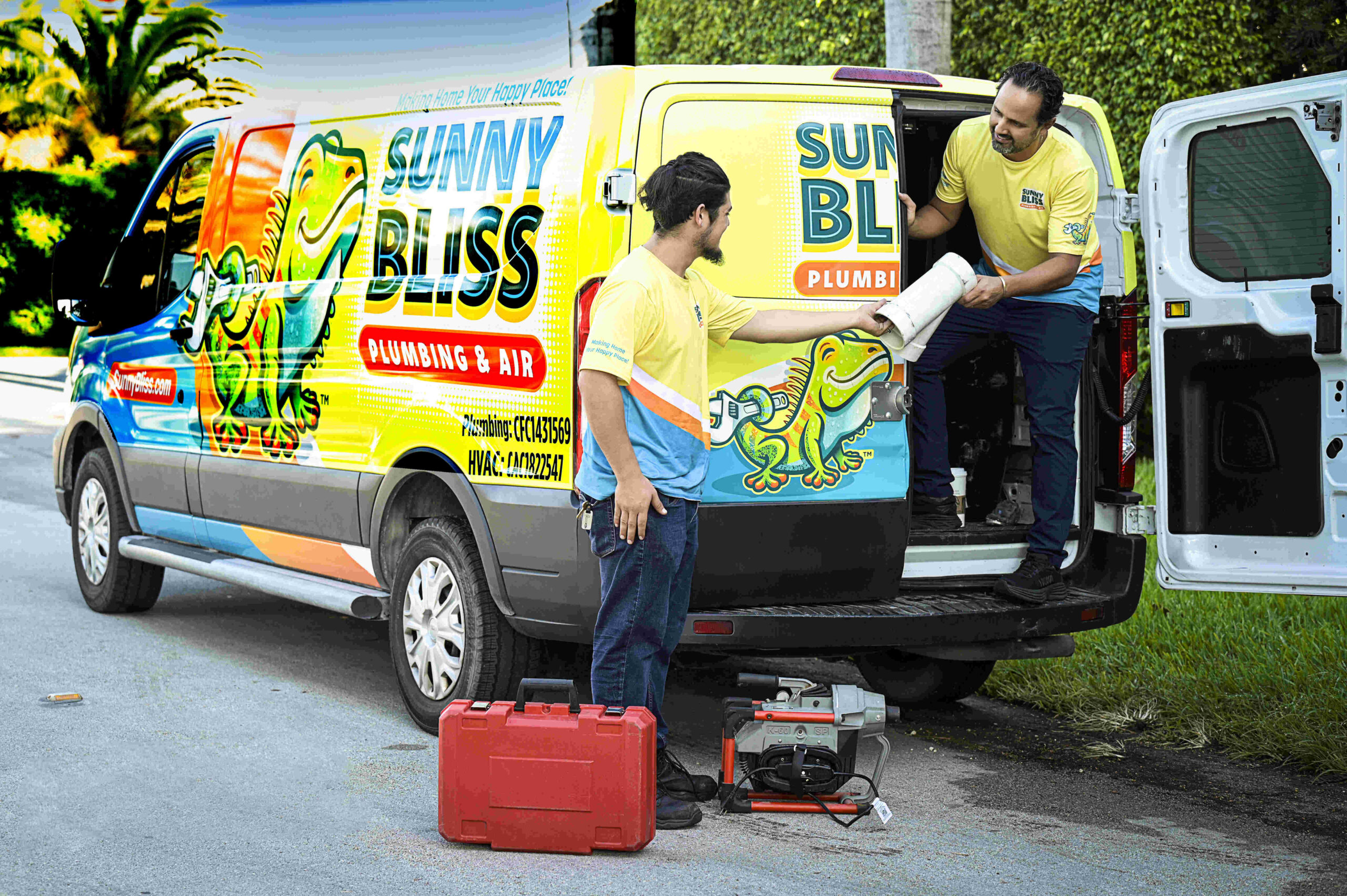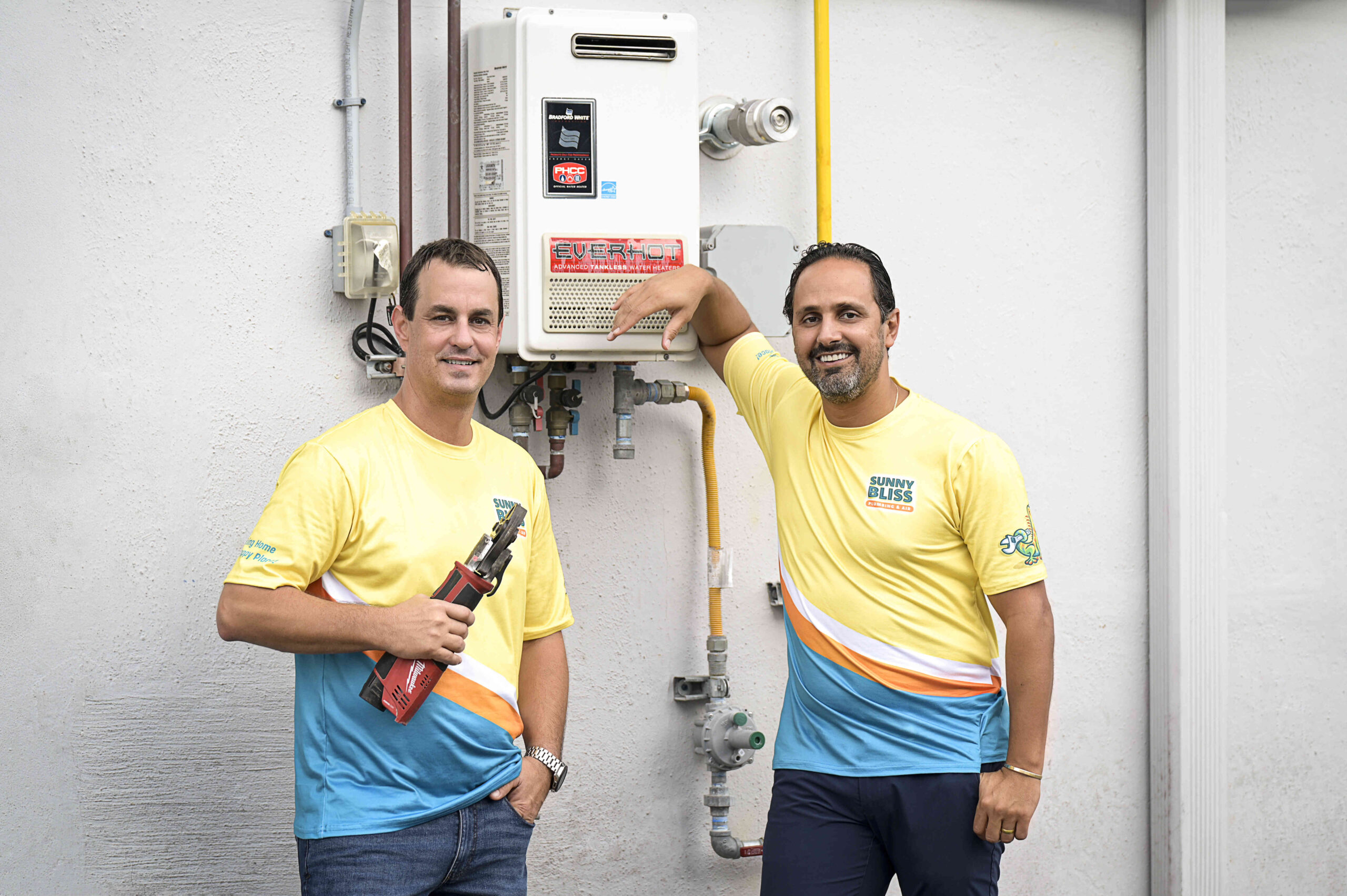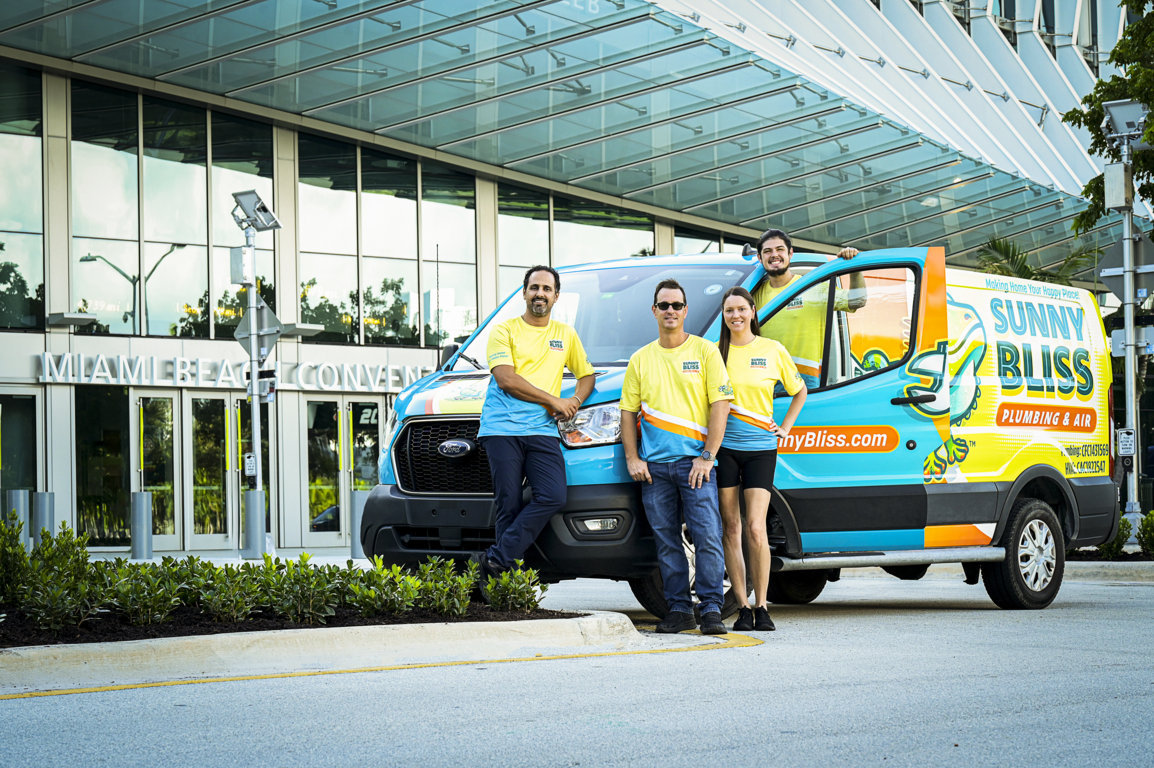Expert Plumbing Tips From Sunny Bliss: Maintaining Your Home’s Water Systems

Welcome to our comprehensive guide on home plumbing. As seasoned professionals in the field, We, at Sunny Bliss, have compiled these essential plumbing tips to help you maintain your water systems effectively, prevent common issues, and know when to tackle a problem yourself versus when to call a plumber. With proper knowledge and regular maintenance, you can keep your plumbing system running smoothly, avoid costly repairs, and extend the life of your fixtures.
This guide covers everything from preventing clogged drains to maintaining your water heater, handling emergency situations like a burst pipe, and performing simple plumbing repairs that can save you money. Let’s dive into these practical solutions that every homeowner should know.
Understanding Your Home’s Plumbing System
The Basics of Home Plumbing
Before jumping into specific tips, it’s important to understand how your home’s system works. Essentially, your plumbing consists of two separate subsystems: one that brings clean water in and another that takes wastewater out.
The water supply system delivers hot water and cold water under pressure to faucets, toilets, and appliances. The drainage system works differently – instead of pressure, it relies on gravity to move wastewater from your home to the sewer line or septic tank.
Knowing Where to Shut Things Off
One of the most critical pieces of knowledge is knowing how to stop water flow during an emergency:
- Main water valve: Every house has a main shutoff that stops all water flow into the home. Locate this valve as soon as possible – typically in the basement, crawl space, or near where the main water line enters your home.
- Individual shutoff valves: Most fixtures and appliances have dedicated shutoff valves nearby – under sinks, behind toilets, or behind washing machines.
Taking the time to identify these valves before you have a plumbing problem can prevent further damage during an emergency.
Essential Maintenance Tips For Your Plumbing System
1. Prevent Freezing in Exposed Pipes
During cold weather, freezing water can cause pipes to burst, leading to extensive water damage and costly repairs.
Prevention Tips:
- Insulate pipes in unheated areas with pipe sleeves or heat tape
- During severe cold, allow faucets to drip slightly to keep water moving
- Keep interior temperatures consistent, even when you’re away
- Seal gaps around pipes where they enter your house to keep cold air out
If you discover a frozen pipe (indicated by minimal or no water flow), apply gentle heat using a hairdryer or heating pad—never use an open flame or high-heat device that could damage the pipe or create a fire hazard.
2. Deal With Leaking Faucets Promptly
That persistent drip from your sink faucet isn’t just annoying—it wastes water and can increase your utility bills significantly over time.
Most leaks occur due to worn-out washers or O-rings, which are relatively simple to replace:
- Turn off the water supply to the faucet
- Disassemble the faucet (take photos as you go to remember the assembly order)
- Inspect the washers, O-rings, and cartridges for wear
- Replace damaged parts with exact matches from a hardware store
- Reassemble and test
This simple fix can save thousands of gallons of water annually.
3. Maintain Your Water Heater
Your water heater works constantly to provide hot water for bathing, cleaning, and cooking. Proper maintenance extends its lifespan and improves efficiency.
Annual maintenance should include:
- Flushing the tank to remove sediment buildup
- Checking the pressure relief valve
- Inspecting the anode rod and replacing if necessary
- Adjusting the temperature to 120°F for optimal efficiency and safety
For tankless water heaters, descaling should be performed annually to remove mineral deposits that can affect performance.
4. Address Low Water Pressure
Low pressure can make everyday tasks like showering frustrating. Common causes include:
- Mineral buildup in faucets and shower heads
- Leaks in the water supply line
- Partially closed valves
- Municipal water supply issues
For fixtures, soaking them in vinegar can dissolve mineral deposits. For whole-house pressure issues, consider having a professional evaluate your system to identify underlying causes.
Preventing And Fixing Common Plumbing Issues

1. Tackle Clogged Drains Properly
Drain clogs are among the most common plumbing issues homeowners face. They typically develop gradually as debris accumulates in your drain lines.
Prevention is key:
- Use drain strainers to catch hair and food particles
- Avoid putting cooking oil and grease down drains
- Regularly flush drains with hot water
When clogs occur:
- Start with a cup plunger designed for the specific fixture
- For stubborn clogs, try a mixture of baking soda followed by vinegar
- Consider using a manual drain snake for deeper clogs
- Avoid chemical drain cleaners as they can cause more harm than good by damaging pipes and creating hazardous conditions
2. Properly Use and Maintain Your Garbage Disposal
Garbage disposals are convenient but require proper use to avoid problems:
- Always run cold water when operating the disposal
- Avoid putting fibrous or starchy foods (potato peels, celery, banana peels) down the disposal
- Never dispose of grease, bones, or other items that aren’t easily ground up
- Regularly clean the disposal by grinding ice cubes and citrus peels
If your disposal becomes jammed, never reach into it. Instead, turn off the power, use the hex wrench that came with the unit to manually turn the mechanism, remove any obstruction, and reset the unit.
3. Toilet Maintenance and Troubleshooting
Toilets are essential plumbing fixtures that require regular attention:
For proper function:
- Only flush toilet paper and human waste
- Never flush sanitary napkins, wipes (even “flushable” ones), cotton balls, or foreign objects
- Keep the toilet tank mechanisms in good condition
For a running toilet:
- Remove the tank lid and check the flapper valve
- Inspect the fill valve and float
- Adjust or replace components as needed
For clogs:
- Use a toilet plunger with an extension flange
- For stubborn clogs, try a toilet auger
- If problems persist, call a professional to avoid damaging the porcelain bowl or trap
4. Update and Replace Old Plumbing Materials
Older homes may have outdated plumbing materials that are prone to problems:
- Galvanized pipes can corrode and restrict water flow
- Lead pipes pose serious health risks
- Polybutylene pipes (used from 1978-1995) are prone to failure
If your home has these materials, consider a phased replacement plan to upgrade to modern PEX, copper, or cross-linked polyethylene pipes. While this represents a significant investment, it can prevent catastrophic failures and protect your family’s health.
Emergency Plumbing Situations

1. Handling a Burst Pipe
A burst pipe requires immediate action:
- Shut off the main water valve to stop water flow
- Open faucets to drain remaining water from the lines
- Clean up standing water to prevent damage
- Call an emergency plumber
- Document damage for insurance purposes
To prevent this emergency, insulate pipes in unheated areas and watch for warning signs like bulging or discolored pipes, or unusual sounds when using fixtures.
2. Overflowing Toilet Emergencies
When a toilet begins to overflow:
- Remove the tank lid and push the flapper down to stop water flow from the tank
- Turn off the water supply valve behind the toilet
- Clean up water to prevent damage and sanitize the area
- Use a plunger or auger to clear the blockage
- Only turn the water back on after the clog is cleared
Keep a dedicated plunger in each bathroom for quick response to these situations.
3. Major Water Leaks
For significant leaks:
- Shut off water to the affected area or at the main valve
- If electrical hazards exist, turn off power to affected areas
- Remove valuable items from the area
- Use buckets, towels, or a wet/dry vacuum to remove standing water
- Call a professional plumber to assess and repair the damage
Consider installing water leak detectors in high-risk areas like near water heaters, washing machines, and under sinks to provide early warning of problems.
Innovative Plumbing Hacks For Homeowners
1. DIY Drain Maintenance
Keep drains flowing freely with these simple solutions:
- Monthly treatment with baking soda followed by vinegar, then hot water
- Use a drain stick or zip-it tool to remove hair clogs before they become severe
- Pour boiling water down drains weekly to dissolve soap scum and light grease
2. Bathroom Fixtures Upgrades
Simple upgrades can improve functionality:
- Install a dual-flush conversion kit on older toilets to save water
- Replace standard shower heads with water-efficient models that don’t sacrifice pressure
- Add aerators to faucets to reduce water usage while maintaining effective flow
3. Kitchen Sink Sprayer Maintenance
To keep your sprayer functioning properly:
- Check for mineral buildup in the sprayer head
- Soak the sprayer head in vinegar solution to dissolve deposits
- Inspect the hose for kinks or cracks
- Ensure the diverter valve is functioning correctly
4. Using Your Water Meter to Detect Leaks
Your water meter can be a valuable tool for detecting hidden leaks:
- Turn off all water-using appliances and fixtures
- Locate your water meter and check the leak indicator (usually a small triangle or dial)
- If it’s moving when no water is being used, you likely have a leak
- Alternatively, note the meter reading, wait two hours without using any water, and check again
This simple test can help identify hidden problems before they cause major problems or expensive water bills.
When to DIY vs. When to Call a Professional Plumber

Projects You Can Handle Yourself
Many minor plumbing tasks are within the average homeowner’s capabilities:
- Replacing faucet washers or cartridges
- Installing new shower heads or faucets
- Clearing simple clogs with a plunger
- Replacing toilet flappers or fill valves
- Insulating exposed pipes
Taking on these projects can save money and build your confidence in handling basic plumbing repairs.
Know When to Call the Professionals
Some situations require specialized knowledge, tools, or permits:
- Gas line installations or repairs
- Main sewer line problems
- Whole-house repiping
- Water heater replacement
- Complex fixture installations
- Recurring clogs that resist DIY solutions
A professional plumber has the expertise to handle these situations safely and effectively, preventing further damage to your home.
Seasonal Plumbing Maintenance Checklist
Spring Plumbing Tasks
- Inspect outdoor faucets and hoses for winter damage
- Check for leaks under sinks and around toilets as houses settle after winter
- Clean and repair gutters and downspouts
- Flush the water heater to remove sediment buildup
Summer Plumbing Preparation
- Check sprinkler systems for leaks or damage
- Inspect washing machine hoses for bulges or cracks
- Clean shower heads and faucet aerators
- Check toilet components for proper function
Fall Plumbing Checklist
- Disconnect and drain outdoor hoses
- Insulate exposed pipes before cold weather arrives
- Check for leaks in the water heater
- Ensure floor drains are clear and functioning
Winter Plumbing Protection
- Maintain consistent home heating, even when away
- Allow faucets to drip during extreme cold
- Keep cabinet doors open to allow warm air to reach pipes under sinks
- Know where your main water shutoff is located for emergencies
Conclusion
Proper maintenance of your home’s plumbing system not only prevents inconvenient breakdowns but also saves money on repairs and water bills. By implementing these expert tips, you can extend the life of your plumbing fixtures, prevent common issues like clogged drains, and know when to tackle a problem yourself versus when it’s time to call in a professional.
Remember that consistency is key – small, regular maintenance tasks can prevent major emergencies. Keep basic plumbing tools on hand, be mindful of what goes down your drains, and stay alert to early warning signs of potential problems.
With these comprehensive tips, you’ll be well-equipped to keep your plumbing system running smoothly for years to come, protecting one of your home’s most essential systems. When in doubt, don’t hesitate to consult with Sunny Bliss. You can call us at 305-990-1399 for all kinds of plumbing work.